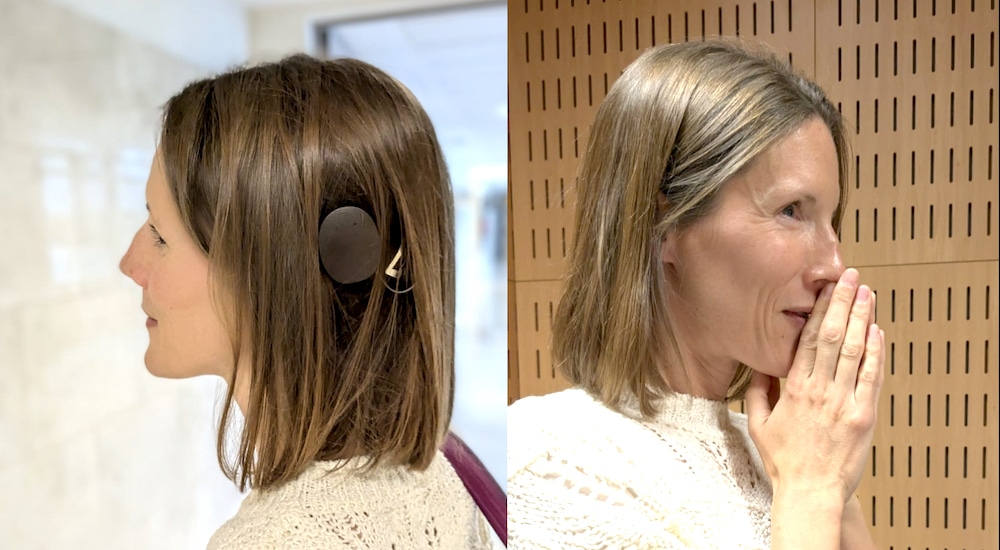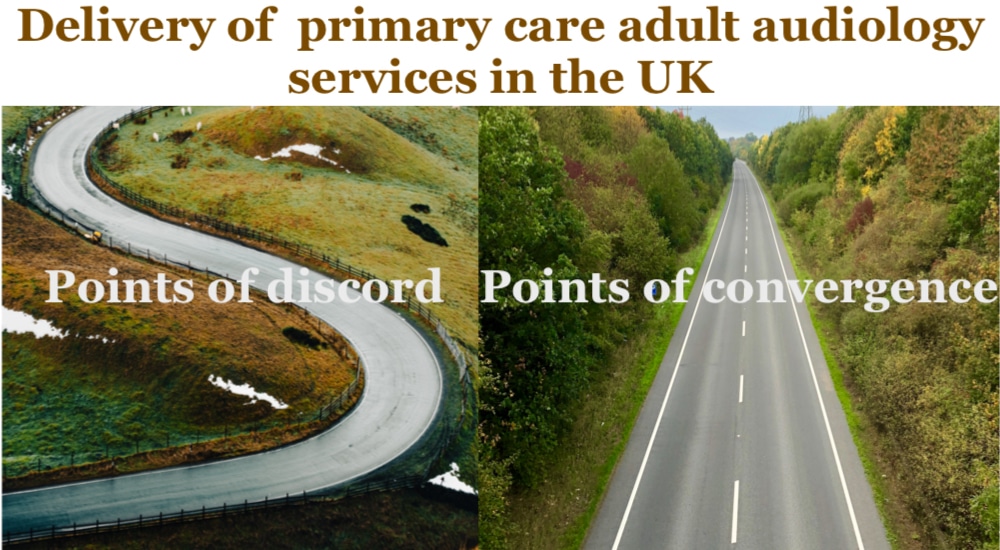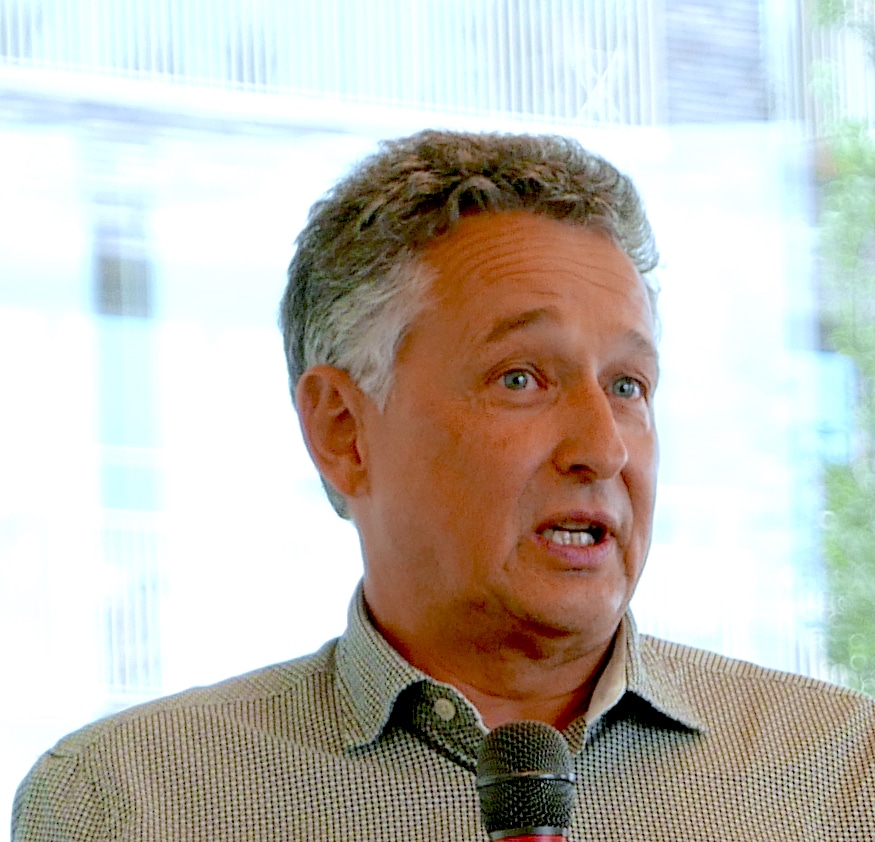AI IN HEARING AIDS - VIEWS OF PROFESSIONALS...AND USERS
Thoughts of professionals on AI suggest manufacturers' views are at variance with how technology is experienced by clinicians and patients.
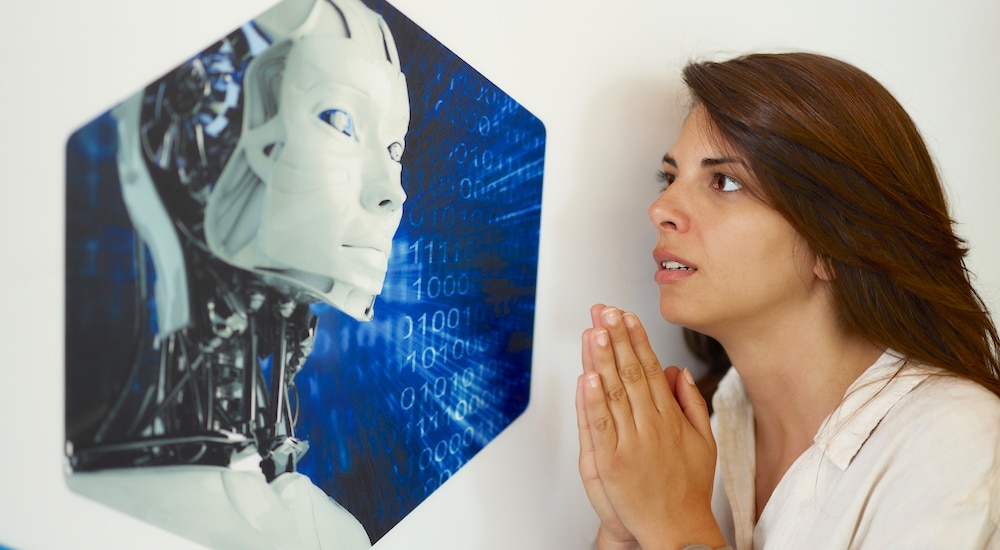
AWN recently published the opinions of hearing aid manufacturers on the transformative power of artificial intelligence in their products. Some gave AI 10/10 for importance in product composition and marketing; others see it as balanced against the fitting experience and hands-on audiological sagacity of the hearing care professional. So what do professionals think? Their answers release a few flies into the ahem, sorry, AIntment.
You know what everyone knows: not a day goes by without the world broadcasting and sharing news of how artificial intelligence is changing, will change, better or better not change our lives.
The fact is that while most of us know little about this complex computing phenomenon, we are left in no doubt that it means things are not going to be the same.
Hearing aids are already not the same, and this means that the daily details of the work of hearing care professionals are also impacted.
Some, such as Deepak Jagota, audiologist at Hearing Well in Chiswick, London, are welcoming, but with an important caveat: “I don’t know enough about AI to be against; however, I see no harm so long as patients can take control if necessary.”
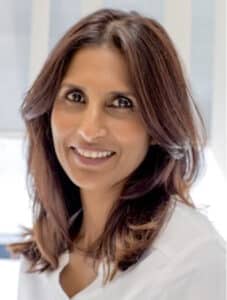
© PC Priya Carling, audiologist: “True engagement and demonstration of caring and personalisation of service delivery by the HCP is key.”
Priya Carling, of Kent Hearing, West Malling, England, also provides a range of consultative and educational services to hospitals, universities and other commercial, clinical and educational establishments.
“To some extent AI has already been incorporated in hearing aids, and there is just no escaping its place in the future. However, I don’t personally think it will be the most important factor in HA adoption or success,” comments Priya.
“Despite the big strides in the technology for sound processing and noise reduction using either machine learning or AI, a patient’s decision for adoption, and level of success very much depends on the HCP. True engagement and demonstration of caring and personalisation of service delivery by the HCP is key and will continue to be so for good patient outcomes.”
The industry is not seen as consulting sufficiently on AI
Priya Carling underlines a concern she shares with many professionals: “Technology has always been only a piece of the puzzle of good aural rehabilitation and will continue to be so. The role of the HCP is a key variable and greater consultation is required by the manufacturers in development of hearing devices and the use of AI, as it is felt that this has not been sufficiently robust.”
Some user views
This role of the HCP in making fitting adjustments is perfectly illustrated by the thoughts of hearing aid user Mark Wilson, Mental Health and Wellbeing Manager at Ford Motor Company. He shared his view with this publication via hearing loss coach, Carly Sygrove.
“I have Phonak Paradise, and my son, Lumity. We both use the AI but it’s taken a bit of tweaking by the hearing God that is Matthew Allsop [Harley Street Hearing and YouTuber for Hearing Tracker] to get it right,” says Mark. “Sometimes the Noise Reduction can be a bit too aggressive. You can tweak it but it’s tough. Matthew is very good at subtle tweaks. Things like detecting and adjusting for car, etc.,” adds Mark.
Another anonymous member of Carly’s Facebook group has slightly different hopes for AI: “I’m hoping that with AI someone will come up with a hearing aid that can change distorted sounds. Years ago, someone came up with a way to take a distorted photo and make it clear, so it’s time someone did that for hearing!”
AI – hope for better hearing

©CS
Carly Sygrove, hearing loss coach, hearing health advocate, and writer, is in constant contact with users of hearing devices, supporting people through coaching, helping them move forward, achieve their goals, and live proudly.
Carly highlights the positive contribution AI can make in dramatically advancing the listening-in-noise capabilities of hearing aids, an essential factor too for the manufacturers:
“AI in hearing aids might sound a bit futuristic or scary, meaning some hearing aid users may have uncertainties about this new and ever-evolving technology. However, hearing aids with AI aim to enhance the user experience and improve overall quality of life. One of the most challenging aspects of hearing loss is trying to follow speech in noisy environments such as restaurants and airports. AI in hearing aids is constantly learning to recognise the sounds that are important to you—such as the voices of your loved ones—which in turn can help improve speech comprehension, and reduce listening effort and fatigue. This is the area that I think will give hearing aid wearers a lot of hope for the future.”
More contact data for Carly Sygrove: Facebook; Facebook group; Linkedin; Instagram; Twitter; Blog; Linktree.
A user who would like AI to offer a solution to her hearing aid problems
Louise Sinnott, who also voiced her opinion through Carly Sygrove’s Facebook group, is struggling with her HAs and would like AI to come to the rescue: “I am a Chief Financial Officer in a bank. I spend most days in meetings and lost hearing on my right side in May 2022. It’s been devastating,” says the user. “I have Phonak CROS and also an Oticon hearing aid. I received the HAs when I was still incredibly upset and struggling to cope. All the information is a blur as a result. I don’t know if there’s any AI, I assume not in what I have. It would be great if AI could provide a solution to focusing on ‘important’ sounds versus background noise by learning what I react to. I am not sure if it is the same for others, but I find I get used to the HA and it becomes less beneficial during a day… a bit like noticing a smell and going nose blind, I get detuned from my HA and hearing deteriorates over the day. In short, I have found hoping for something better hinders my acceptance of the condition and now I’ve found that accepting it and almost giving up making it better has helped me cope better.”
********************************************************************************************************************
4 QUESTIONS FOR PROFESSIONALS
In the first part of this look at AI in hearing aids, we put four questions to manufacturers. Using that same format, we asked for responses from three audiologists known for their experience and leadership roles in professional associations.
1. OF THE IMPROVEMENTS AND ENHANCEMENTS THAT AI IS BRINGING TO HEARING DEVICES, WHICH ARE THE MOST IMPORTANT FOR THE HEARING CARE PROFESSIONAL?
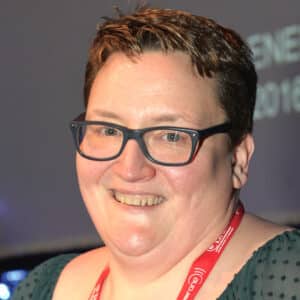
©BAA Sue Falkingham: “I do not believe the manufacturers have a good grasp of the way the majority of customers choose to engage with their technology in the real world and moving the whole process to AI would leave many current customers unable to access hearing technology.”
Sue Falkingham, private practice The Skipton Audiologist, Skipton, Yorkshire:
Having come to work as an Independent audiologist from the cutting edge of hearing aid manufacturing, I expected to be able to engage my customers with the benefits of AI that I had been talking to dispensers about for several years. How wrong I was! Most of my customers have no interest in the additional AI technology hearing aids offer, like fall detection, digital assistants, and activity tracking. At follow ups I find most users have not tried the apps we connected to at fittings, and they have just worn their hearing aids. So, the only AI that counts in the real world is that which helps people hear better in background noise without the addition of a mobile phone app or even connection to a mobile phone.
Oliver Wright, Vice Chair of the Association of Independent Hearing Healthcare Professionals (AIHHP) and co-founder of DigiClear Hearing, Essex:
The ability to more accurately fine tune devices for a patient’s preference and to have devices which can function more intuitively in time is a great potential benefit.
Raúl García-Medina, The Audiology Clinic, London, and regular columnist on hearing health in Audiology News UK:
I strongly believe that we are just scraping the surface of the realm of possibilities that AI will bring to the table for hearing care professionals and, in turn, to the patients we serve, but right now, if I have to name four, those would be:
Personalised hearing programs employing machine learning and deep neural networks to create programs based on the wearer’s preferences and listening environments, leading to better speech understanding and sound quality.
Real-time sound adaptation and sensors: AI algorithms in hearing aids make millions of fine-tune adjustments in real-time based on the sounds detected, allowing for improved speech recognition, reduced listening effort, and enhanced communication experiences for users. Sensors, on the other hand, can detect activities, gestures, monitor social engagement, physical activity, and even detect falls.
Diagnostic capabilities: AI can assist in diagnosing tinnitus and assessing its severity through advanced algorithms, providing objective measures that can enhance treatment strategies and monitoring of the condition over time.
Enhanced user experience: AI-powered features in hearing aids reduce listening effort, improve memory recall, and allow users to focus more on conversations by creating a more natural listening experience that adapts to various environments.
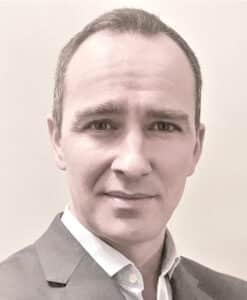
©RGM Raúl García-Medina: “Right now, no manufacturer shares the real workings behind the scenes. The beginning is always a treasure kept behind closed doors.”
2. WHAT CONCERNS LOOM LARGEST FOR THE PROFESSIONAL FROM THE INCORPORATION OF AI TECHNOLOGY IN HEARING INSTRUMENTS?
Sue Falkingham:
I’m not very concerned about AI being incorporated if the manufacturers stick to simple end user application. I would be concerned if the introduction of AI limited software adjustment by audiologists if required. Simple workflow is very beneficial but taking controls away from audiologists limits the use of best practice for the non-routine case. For example, not being able to easily adjust to real ear measurement targets.
Oliver Wright:
My biggest concern is that AI and automation takes away from the very personal and subjective nature of sound, hearing and hearing loss. This automation can’t come at the expense of patient experience and personalisation. If AI is relied upon solely, I could see this being an issue. On a purely selfish perspective I suspect the profession would also worry about the need for a fleshy audiologist being involved in the process at some point as well!
Raúl García-Medina:
I have several concerns, and mostly they relate to the unknown. I remain hopeful that in the near future these would be resolved but some are:
Ethical concerns: There are unresolved ethical issues related to data privacy, appropriate use of technologies, and liability when employing AI in hearing devices.
Dependency on technology: Overreliance on AI-driven features may reduce user autonomy and self-management of hearing aids, potentially affecting regular use and management ability. And for the hearing care provider, these features are hidden (automated) and not well understood, which makes verification and validation of the personalisation of technology almost a redundancy.
Market challenges: The hearing healthcare industry faces challenges such as market concentration, excessive regulation, and restricted distribution that hinder innovation and disrupt market dynamics.
3. WHAT LEVEL OF CONSULTATION ON AI HAS THE PROFESSION ENGAGED IN WITH MANUFACTURERS? MOVING FORWARD WITH AI, ARE PROFESSIONALS IN A POSITION TO DEMAND GREATER INPUT ON AI?
Sue Falkingham:
I am not aware of any manufacturer meaningful engagement with clinicians on AI. I know that keystrokes are collected on software sometimes, but data collection remotely is not engagement.
Oliver Wright:
From my experience, by the time the wider, on-the-ground HADs are involved in focus groups, the products and tech are already signed off and on their way to market, so I think our input is pretty limited to be honest…
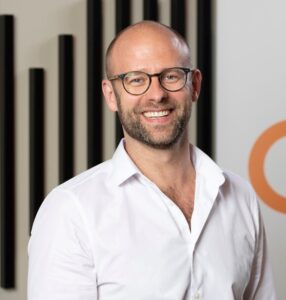
Courtesy of AIHHP Oliver Wright: “My biggest concern is that AI and automation takes away from the very personal and subjective nature of sound, hearing and hearing loss.”
Raúl García-Medina:
The use of AI in hearing technology has progressed from basic functionalities like noise management and directional microphones to more sophisticated features such as personalised sound therapy, real-time adjustments, and activity monitoring through sensors. As AI continues to play a crucial role in enhancing hearing aid capabilities, professionals are positioned to provide valuable insights and feedback to manufacturers to ensure that AI-powered features align with clinical needs, user preferences, and industry standards. This collaboration between professionals and manufacturers is essential for driving innovation, improving user experiences, and advancing the field of audiology. However, professionals require being able to personalise these capabilities to the end user, and right now no manufacturer shares the real workings behind the scenes. The beginning is always a treasure kept behind closed doors.

©Getty Images/iStockphoto – agsandrew For the on-the-ground professionals that responded to this survey of their opinions, AI in hearing aids is a wonder that raises as many doubts as it does hopes.
4. WE ASKED HEARING AID MANUFACTURERS IF THE FUTURE OF HEARING AIDS IS ALL ABOUT AI? IN GENERAL, THE ANSWER WAS “NO”. THEY SPOKE OF AI AS AN ENABLER AND CATALYST TO ACHIEVING GOALS SUCH AS BETTER SPEECH UNDERSTANDING OR WEARER PERSONALISATION, AND THEY UNDERLINED THE IMPORTANCE OF CHOICE, FEEDBACK TO THE HCP, AND CARING. TEN YEARS FROM TODAY, IN 2034, DO YOU THINK HEARING AIDS WILL BE ALMOST ENTIRELY BASED ON AI TECHNOLOGY?
Sue Falkingham:
I think the algorithms used to identify and respond to the sound environment will be mainly AI based in 10 years. I don’t believe the fitting and selection process will have moved to a solely AI approach. I do not believe the manufacturers have a good grasp of the way the majority of customers choose to engage with their technology in the real world and moving the whole process to AI would leave many current customers unable to access hearing technology. The HCP is important and will remain important in that process.
Oliver Wright:
I personally feel that the subjective, emotive, and personal nature of hearing and sound will always require the input of a hearing care professional to advise and support, but who knows!
Raúl García-Medina:
Based on the current trajectory and advancements in hearing aid technology, it is highly likely that in ten years, by 2034, hearing aids will be predominantly based on AI technology. As AI continues to evolve and become more sophisticated, it is expected that future hearing aids will rely heavily on AI algorithms for sound processing, environmental adaptation, user customisation, and health monitoring. The collaboration between professionals and manufacturers will play a crucial role in shaping the development of AI-powered hearing aids to meet the specific needs of users and ensure optimal performance and user satisfaction.
